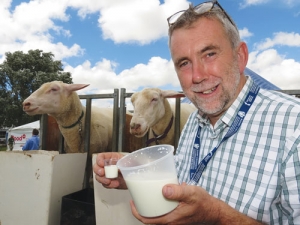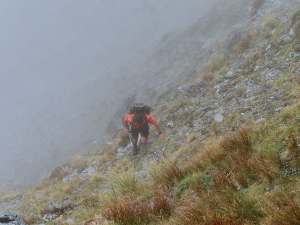A conferance on NZ sheep milking is being held next month at Massey University, and it's already attracting participants from around the world.
Associate professor Craig Pritchard, from Massey's School of Management, organised a similar two-day conference last year and says its success is drawing registrations from far and wide.
"We have Australians coming, and we've a keynote speaker Haim Leibovich from Israel, which has the most intensive sheep dairying farming operation on the planet," Pritchard told Rural News.
"We're also getting attention from Europe and North America... and that is exciting.
"What I'd like to see over the next few years is the industry in NZ starting to build relationships with some key European and North American sheep dairy players so we're regarded as an important part of the world sheep dairy industry."
Pritchard says last year's conference was highly successful in putting sheep dairy operators in NZ in touch with some great overseas contacts, contributing to the growth of two sheep dairy operations in the central North Island. He cites the hiring of John Ryrie, a notable sheep dairy expert, by Spring Sheep Dairy, a Landcorp joint venture with SLC, to establish their new sheep milking operation near Taupo.
Pritchard also notes that the Waituhi Kuratau Trust, near Turangi, which has milked sheep since about 2004, now has a partnership with a Shanghai company and has formed Maui Milk, producing and exporting powdered sheep milk.
Prior to this venture the trust had been selling its cheese and yoghurt on the local market. But last year's conference sparked the involvement of the Chinese investor.
"2015 was an enormous year for sheep dairying in NZ. Spring Sheep Dairy got going and has the best sheep dairy manager on the planet working for them," Pritchard says. "The big challenge for them now is to connect with innovation and develop relationships with key customers offshore.
"While SSD is keeping that to itself at the moment, I understand they have big plans in the background – high-end goods such as ice-creams, yoghurts and the like. The big challenge for them is to connect that to the health benefits and NZ story and the environment in which these sheep are kept and the way lambs are reared."
While the larger operators have expanded, so have some smaller ones including Kingsmead Artesian Cheese, run by Miles and Janet King, near Masterton. They have made cheese – from cow and sheep milk – on their 12ha farm since 1988. They are regarded at as the kaumatua of the sheep dairy industry in NZ. Pritchard says they have strong brands which they sell at their shop, on-line and in shops NZ-wide.
"Miles in the last six months has employed an experienced Italian soft cheese maker and over the next year he will have four new suppliers of sheep milk. I can see them potentially looking at export in the next couple of years given the quantities coming on for them and that is great news for the small producers."
He says this shows how you can cluster together with an expert cheese maker and produce excellent cheese.
He concedes it is early days for the sheep milking industry in NZ and there are big challenges. Many operators are trying new ideas with a big focus on developing high-value export markets.
At the conference in March scientists from AgResearch will report on a five year study of the composition of sheep milk.










